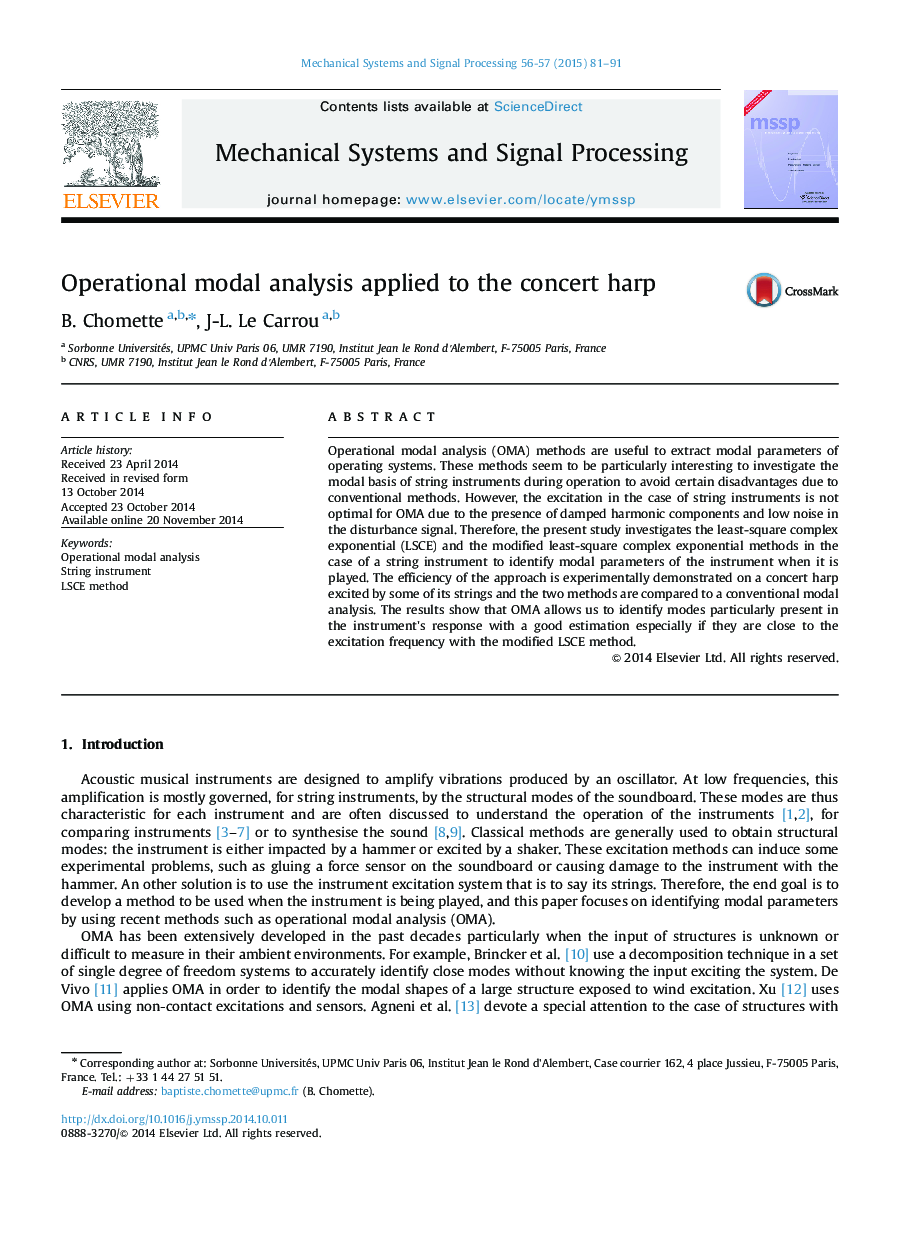| Article ID | Journal | Published Year | Pages | File Type |
|---|---|---|---|---|
| 6956143 | Mechanical Systems and Signal Processing | 2015 | 11 Pages |
Abstract
Operational modal analysis (OMA) methods are useful to extract modal parameters of operating systems. These methods seem to be particularly interesting to investigate the modal basis of string instruments during operation to avoid certain disadvantages due to conventional methods. However, the excitation in the case of string instruments is not optimal for OMA due to the presence of damped harmonic components and low noise in the disturbance signal. Therefore, the present study investigates the least-square complex exponential (LSCE) and the modified least-square complex exponential methods in the case of a string instrument to identify modal parameters of the instrument when it is played. The efficiency of the approach is experimentally demonstrated on a concert harp excited by some of its strings and the two methods are compared to a conventional modal analysis. The results show that OMA allows us to identify modes particularly present in the instrument׳s response with a good estimation especially if they are close to the excitation frequency with the modified LSCE method.
Keywords
Related Topics
Physical Sciences and Engineering
Computer Science
Signal Processing
Authors
B. Chomette, J-L. Le Carrou,
